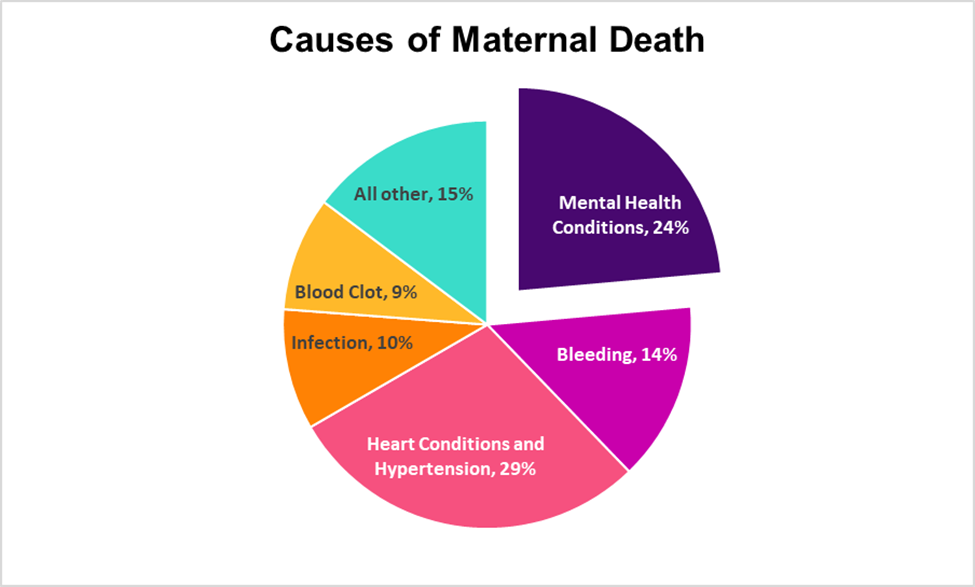Improving mental health access can improve maternal outcomes
March 18, 2024
Source: Trost, S et al “Pregnancy-Related Deaths: Data from Maternal Mortality Review Committees in 36 US States, 2017–2019”
Centers for Disease Control and Prevention, 2022. Calculations by me. LINK
The United States has maternal mortality rates 2-3 times higher than other developed countries, and maternal mortality rates are 2.6 times higher for Black women compared to White women. Most deaths (53%) occur a week or more after delivery, and 80% are preventable. We have made some progress over recent years, including decreasing the rate of early elective deliveries (without medical cause). Many states have extended Medicaid coverage to mothers for 12 months after delivery. Forty-seven states have perinatal collaboratives to help improve maternal health care quality and safety.
Mental health conditions are a leading cause of pregnancy related mortality in the US, representing almost a quarter of all maternal deaths. Here are a few statistics from different studies reported in a recent review article in JAMA Psychiatry:
Fourteen and a half percent of pregnant individuals have depression onset during pregnancy, and an equal percentage develop postpartum depression within three months of delivery.
Mothers with depression have more than four times the risk of maternal mortality.
A Michigan study showed that 71% of maternal deaths due to suicide or drug overdose had a documented psychiatric disorder, but only about a third (35%) were prescribed drug treatment.
I’ll discuss Zurzuvae (zuranolone), a new medicine for postpartum depression, in a future post. This new and expensive drug is currently not covered by most employer sponsored health insurance plans.
Implications for employers:
Paid parental leave has been shown in European studies to decrease the risk for maternal mental health disorders.
Networks with adequate access to mental health care can help address mental health conditions during pregnancy and after delivery.
Employers can communicate the availability of mental health services for pregnancy and postpartum.
Employee Assistance Programs can offer free mental health sessions for anyone who needs them.
Here’s a link to an article I authored in Harvard Business Review last spring about what employers can do to make childbirth safer.
Thanks for reading. You can find previous posts in the Employer Coverage archive
Please subscribe, “like” and suggest this newsletter to friends and colleagues. Thanks!
Tomorrow: Virtual doulas lower Cesarean section rates, especially for Black people

